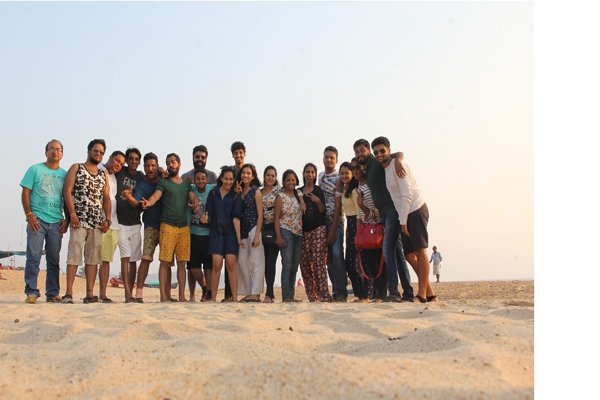Pankaj Pathak, Co-founder of CityShor has always followed No Sir No Madam ethics in his life. CityShor is a platform, to educate its followers about the unusual and unheard things about a particular city. They cover aspects like the best food, entertainment, fashion, and travel places.
Pankaj, on completing his studies, has worked as an HR manager in different corporate organisations. Being an avid traveler, Pankaj wanted to do something that would reflect his hobbies. He and his friend, Pallav Parikh, shared their hobbies, thus, got together to set up CityShor.
Being a stern believer of No Sir No Madam cause, he practices it everywhere he can. Pankaj upholds that respect has nothing to do with ‘Sir/Madam’. Salutation order is so ingrained into people, that they follow it subconsciously.
He states — I personally prefer being addressed by my first-name. It makes me happy. Moreover, No Sir No Madam habit also encourages employees to share their views and provide constructive feedback. Such evaluation is necessary to the growth of any company.
He has implemented the same routine in his office too. Pankaj indicates — Removing salutation barriers lets people communicate openly. It even improves their performance as they feel like an integral part of the company. Therefore, I inculcate first-name culture among my employees. Although, I remember, people had difficulty in adapting a casual culture.
Recently, a person from the sales background came for an interview. He constantly addressed me as ‘Sir’. I had to intervene and inform him that, it would be better if you address me by first-name. I wanted to create an environment where we could converse like friends. Pankaj annexes, “the person whom I hired is more comfortable with first-name custom now and appreciates the casual culture.”
He is aware of salutation practice in private companies, having worked as an HR personnel. Pankaj recites — when I had started working, my seniors were double my age. I used to address them by their first-name, despite being a little nervous.
It was surprising to me that they admired No Sir No Madam tradition. Being an HR manager, I had to interact with a lot of people. I used to try and practice first-name greeting as much as possible. It was truly encouraging when people did not take offend on being referred by their first-name.
‘Sir/Madam’ injunction is widely practiced in government offices in India. People working there seem to resist welcoming any other form of greeting.
Pankaj mentions, if you ever get pulled over by a traffic police, you have to address them as ‘Sir’. There is no way of getting out of that situation, if you refer them without a salutation. He ventures that there are other respectful ways of addressing people. Especially, if an official is senior to you in age, he/she can be addressed with a ‘Ji’ at the end of their name. Indians are fortunate to have such substitutes to show respect and should utilize them more often.
Furthermore, Pankaj talks about the disparity in Indian society. He accentuates that people should uplift and treat the less fortunate people. If people eradicate a salutation edict from their lives, it would help the underprivileged to feel at parity with them. “After all, no work is big or small, so why should people be discriminated based on their job,” he speaks.
He cites an example of his company, where the office boy is referred as ‘Colonel’. Pankaj termed the guy as ‘Colonel’ because the person had a name that people generalize with a servant. “I wanted to ensure that he does not feel inferior to us. That is why we gave him the tag of colonel. We also informed him that he is our caretaker and responsible for the company’s functioning. This small initiative has assisted him in feeling proud of his work,” Pankaj conjectures.
It is common knowledge, to restructure an age-old custom; it has to be uprooted from its roots. Pankaj understands that students are instructed about ‘Sir/Madam’ decree, so that they respect their teachers.
For example, it is difficult to abuse someone when you refer them as ‘aap’. Similarly, a salutation order teaches a student to equate respect with ‘Sir/Madam’. It is although inspiring that many schools in India are now adapting to the first-name system.
In conclusion, Pankaj thinks that companies like Tata, Reliance, and Google, etc. should set up benchmarks for smaller companies. Professionals usually look up to such organizations for examples. He also suggests, conducting surveys to study before and after-effects of No Sir No Madam exercise.
Overall, he summarizes, “First-name habit helps in working cooperatively. Friends working together will collaborate more efficiently and for a longer period of time. Therefore, implement No Sir No Madam and see the change yourself.”







Add comment